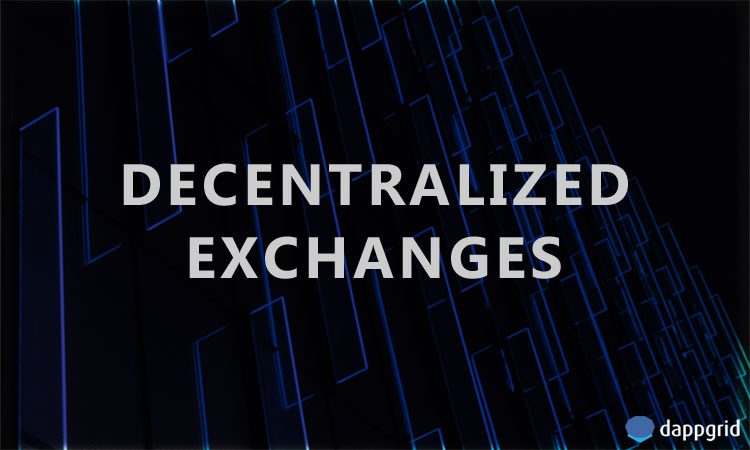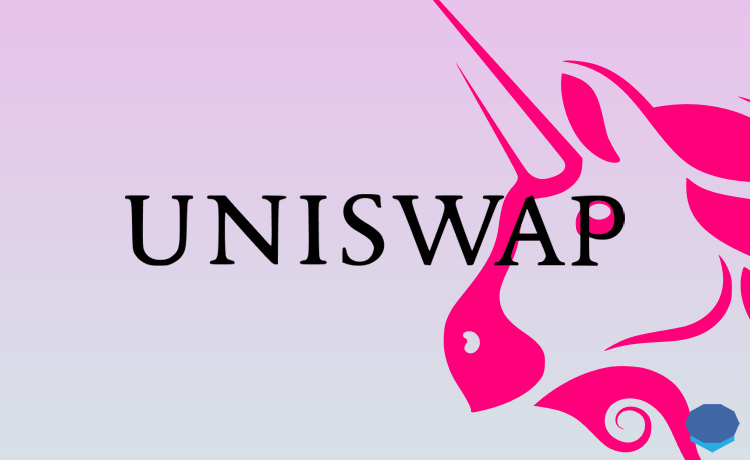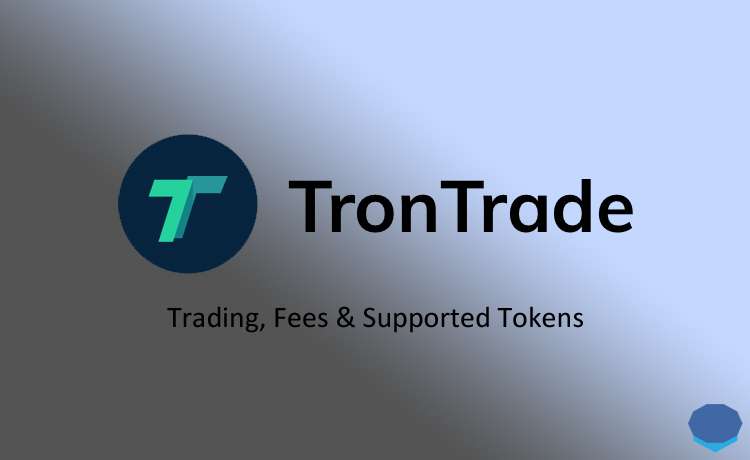There are many decentralized exchanges that you can use to trade cryptocurrencies. In this list, you can find the most popular decentralized exchanges in the crypto ecosystem with fees and token listings.
You can use the decentralized exchanges below to trade cryptocurrencies based on various blockchains such as Ethereum, EOS, TRON, Binance Chain and Binance Smart Chain, without giving up control of your cryptocurrencies.
In decentralized exchanges, you are the one who is responsible for the security of your tokens to a large extent. Chances are you will not get hacked or have any problem while using decentralized exchanges if you use some common sense.
But, as crypto is full of risks including hacking attacks, you should consider getting a hardware wallet like Ledger Nano X which will protect your private keys while you trade on decentralized exchanges.
Ethereum-based decentralized exchanges
1- IDEX
IDEX is a hybrid, semi-decentralized exchange and has over 450 trading pairs. IDEX has its own utility tokens which are IDEX and IDXM. IDEX is a staking token which users can stake and earn fees collected by IDEX. IDXM, similar to Binance’s BNB token, is used for reducing trading fee and such purposes.
IDEX fees: 0.2% for the market taker and 0.1% for the market maker + gas fee
Stablecoins listed on IDEX: DAI, PAX, TGBP, USDS, WBTC
See IDEX volume and market listings on CoinMarketCap: IDEX
IDEX verification tiers and requirements:
Tier 1 Verification – Name, email, date of birth and country is required, daily withdrawal limit of $5000 USD, unlimited trades.
Tier 2 Verification – An address, a passport (or other approved ID) and a selfie in addition to tier 1 data is required, unlimited trades and withdrawals.
2- ForkDelta
ForkDelta is forked version of EtherDelta with improvements in the back-end and a new token listing system. It currently uses EtherDelta’s original smart contract.
You can trade many Ethereum tokens by creating or importing an Ethereum wallet on ForkDelta in a decentralized manner. ForkDelta also supports Ledger Nano S.
ForkDelta fees: 0.3%+ gas fee
Stablecoins listed on ForkDelta: DAI
3- KyberSwap
KyberSwap is a platform based on Kyber’s protocol which you can use to swap between 70+ tokens. You can connect to KyberSwap with MetaMask, Ledger and Trezor hardware wallets, keystore files and private keys.
Kyber enables decentralized atomic token swaps with its on-chain liquidity protocol. In addition to KyberSwap, the list of other products including wallets, websites, and applications which are powered by Kyber can be found on Kyber’s official site.
Trading limits on KyberSwap
- US$50,000 (daily) for non-KYC users.
KyberSwap fees
- Zero fees and gas for those who hold at least 2000 KNC.
- 0.1% in limit order fees and no gas for those who hold less than 2000 KNC.
Stablecoins listed on KyberSwap: DAI, WBTC, WETH, TUSD, USDC, DGX, EURS and PAX
4- token.store ETH
token.store ETH or The Token Store is a decentralized Ethereum exchange built on smart contracts. It consists of a brokerage page in which orders are pooled from different DEXs and its own exchange. A total of 314 tokens listed on token.store ETH can be seen on the exchange.
token.store ETH fees: 0.30% for the market taker and 0% for the market maker + gas fee
Token Store stats such as number of users and volume can be tracked on: Dapp.com
5- Uniswap
Uniswap is a decentralized, automated liquidity protocol for Ethereum-based tokens. The protocol provides an interface called Uniswap Exchange for the exchange of ERC-20 tokens.
Uniswap defines itself as a public good, so there is no platform fee, instead the trading fee is distributed to those who provide liquidity to Uniswap. There is also a token called UNI issued by Uniswap which is used for governance and liquidity mining.
Supported wallets: MetaMask, Coinbase Wallet, Portis, Fortmatic, WalletConnect.
Uniswap fees: 0.30%.
To learn how to trade on and provide liquidity to Uniswap, you can check out our Uniswap review below:
6- Mooniswap
Mooniswap is another AMM on the Ethereum blockchain which works exactly like Uniswap. Mooniswap utilizes a different approach to exchange rates to minimize impermanent loss which is the biggest problem for liquidity providers.
You can use Mooniswap to trade ERC-20 tokens and add liquidity to the protocol to earn fees. Mooniswap has also its own token called 1INCH. You can participate in liquidity mining of 1inch token by adding liquidity to eligible pools.
Supported wallets: MetaMask, Coinbase Wallet, Portis, Fortmatic, WalletConnect.
Mooniswap fees: 0.30%.
To learn how to use Mooniswap and more about 1inch token, you can check out our Mooniswap review below:
7- 1inch
1inch is a decentralized exchange aggregator. It uses various decentralized exchanges to source liquidity and give users the best rates in the market.
You can use 1inch.exchange to swap cryptocurrencies at the best prices in the market. 1inch exchange also allows users to create limit orders for free and supports various cryptocurrency wallets.
Supported wallets: MetaMask, WalletConnect, WalletLink, Ledger, Portis, MEW, Fortmatic and various other wallets.
1inch fees: No platform fee. Trading fee depends on exchanges from which liquidity is sourced.
To learn how to use 1inch, you can check out our 1inch exchange review below:
8- Matcha
Matcha is an Ethereum-based decentralized exchange aggregator. It allows users to swap tokens at the best prices by aggregating liquidity from various exchange networks such as 0x Mesh, Kyber, Uniswap, Curve and Oasis.
When you want to make a trade using decentralized exchange aggregators, you can check out both 1inch and Matcha to see which one offers the best rate and is less costly.
Supported wallets: MetaMask, Coinbase Wallet and Bitski wallet.
Matcha fees: No platform fee. Trading fee depends on exchanges from which liquidity is sourced.
To learn how to use Matcha exchange, you can check out our Matcha exchange review below:
9- Balancer
Balancer is an automated market maker (AMM) that allows users to swap Ethereum-based tokens instantly and earn fees by providing liquidity to the platform.
There are many AMM protocols. Balancer is different than other protocols in that it allows liquidity providers to create pools with more than two tokens, set different weights for each token and charge a trading fee between 0.0001% and 10%.
If you want to make money by providing liquidity to AMM protocols, you should definitely check out Balancer. You can provide liquidity to Balancer pools in which the token you are bullish on has more weight to minimize impermanent loss.
Supported wallets:MetaMask, WalletConnect and Portis.
Balancer fees: Depends on the pool from which liquidity is sourced.
To learn how to use Balancer exchange, you can check out our Balancer exchange review below:
10- SushiSwap
SushiSwap is an AMM protocol and a successful fork of Uniswap. SushiSwap has its own token called SUSHI. SUSHI holders can stake their tokens to earn protocol fees.
You can trade Ethereum-based tokens on SushiSwap and also participate in farming to earn SUSHI tokens. Users can add liquidity to SushiSwap pools and then stake their LP tokens to earn SUSHI tokens.
Supported wallets: MetaMask and WalletConnect.
Sushiswap fees: 0.3%.
To learn how to use SushiSwap, you can check out our SushiSwap review below:
EOS-based decentralized exchanges
1- Newdex
Newdex is the world’s first EOS decentralized exchange. It displays order information on chain to provide users with a transparent and real-time checkable exchange data. Embedded in many wallets including TokenPocket and MEET.ONE, Newdex also supports cross-chain trading.
Newdex fees: 0.1%
Newdex market listings can be seen here
2- WhaleEx
WhaleEx is a decentralized exchange based on EOS, the platform is also available on iOS and Android and supports Chinese, English and Korean languages.
WhaleEx uses multisignature smart contract for decentralized asset custody, so any change made to the smart contract and asset needs the approval of more than one party.
Users can trade crypto assets without paying any fee on WhaleEx by staking WAL tokens.
3- Chaince
Chaince is a semi-decentralized exchange with a centralized trading module. It provides full support for airdrops on the EOS blockchain and with many marketing activities, Chaince positions itself as position as the most influential platform on the EOS blockchain.
Chaince fees: Service fees
4- EOSDAQ
EOSDAQ is a decentralized exchange for EOS native tokens. As a on-chain DEX, EOSDAQ’s priority is to provide transparency and security through smart contracts and collaboration with top security companies and experts.
Listed tokens and fee structure can be seen on EOSDAQ.
5- DEXEOS
DEXEOS is the world’s first EOS-based decentralized exchange. It does not require users to provide any personal information or complete KYC process. DEXEOS users can also stake CPU and NET.
For listed tokens and other information, please refer to DEXEOS
6- EOSLocally
EOSLocally is a trustless P2P trading platform for EOS, powered by smart contracts. Users can buy and sell EOS tokens without trusting third parties. There is 0.99% fee for users who buy EOS on the platform. You can refer to this page for details regarding EOSLocally fees and VIP levels.
TRON-based decentralized exchanges
1- TronTrade
TronTrade is a decentralized exchange for trading TRC10 and TRC20 tokens. TronTrade is the first exchange to support TRC10 tokens, besides being committed to innovation, TronTrade provides users with a user-friendly UI and a support team available 24/7 on Telegram.
Supported wallets: GuildWallet and TronLink.
TronTrade fees: 0.2%.
For more information about TronTrade, check out the review below:
2- JustSwap
JustSwap is a TRON-based automated liquidity protocol that allows users to exchange TRC20 tokens instantly. JustSwap works in a similar way to Uniswap.
In addition to trading TRC20 tokens, you can also add liquidity to JustSwap pools to earn trading fees.
Supported wallets: TronLink.
JustSwap fees: 0.3%.
To learn how to use JustSwap, you can check out our JustSwap review below:
3- Kiwidex
Kiwidex is a decentralized exchange on the TRON blockchain. A wide variety of TRC10 and TRC20 cryptocurrencies can be traded on Kiwidex. Kiwidex also provides multi-terminal support, covering iOS, Android and H5.
4- Poloni DEX
Poloni DEX (TRXMarket) is a TRON-based decentralized exchange with zero trading fee. Listed TRC10 or TRC20 tokens and trading pairs can be seen on the exchange. In terms of trading volume, TRXMarket has been one of the leading decentralized exchanges on the TRON network.
TRXMarket was acquired by the US-based cryptocurrency exchange Poloniex and rebranded as Poloni DEX.
Binance DEX
Binance DEX is a decentralized cryptocurrency exchange built on Binance Chain and developed by Binance, which allows the trading of digital assets issued on Binance Chain.
You can view assets issued on Binance Chain on the explorer and trading pairs on CoinMarketCap or Binance DEX.
Binance DEX fees:
| Transaction Type | Pay in non-BNB Asset | Pay in BNB |
|---|---|---|
| Trade | 0.1% | 0.04% |
For a complete guide for creating a Binance Chain wallet, trading on Binance DEX and the fees, please refer to the guide below:
PancakeSwap
PancakeSwap is a decentralized exchange based on Binance Smart Chain. PancakeSwap is currently the number #1 dapp on Binance Smart Chain by volume and users.
You can use PancakeSwap to trade BEP20 tokens and earn CAKE tokens by adding liquidity to PancakeSwap pools or staking your CAKE tokens.
Supported wallets: MetaMask, Trust Wallet, TokenPocket, MathWallet and WalletConnect.
PancakeSwap fees: 0.2%.
To learn how to use PancakeSwap and stake CAKE tokens, you can refer to our PancakeSwap review below:
Waves Decentralized Exchange
Waves DEX is a decentralized exchange that allows users to trade Waves-based tokens as well as other major cryptocurrencies and fiat assets via different gateways.
Waves DEX has Ledger support and is suitable for trading bots by offering real time access to market data.
Waves DEX fees: 0.003 WAVES per order filled
Waves DEX trading volume and listed cryptocurrencies: Waves DEX on CoinMarketCap
Bisq – Decentralized Bitcoin exchange
Bisq is an open source, peer-to-peer, decentralized Bitcoin exchange. It is a desktop application running on Windows, Mac, Debian/Ubuntu, Arch Linux and Red Hat/Fedora, using a peer-to-peer network over Tor.
Users need to download the application to their computer to use Bisq.
As an entirely decentralized Bitcoin exchange with its Bisq DAO went live a short time ago, besides not holding any Bitcoin or fiat currency and not intervening in any transactions between traders, Bisq aims at becoming a self-sustaining and censorship-resistant decentralized exchange.
Bisq trading volume and listed cryptocurrencies: Bisq on CoinMarketCap
For other details: Bisq FAQ
Decentralized exchange stats – Users, volume & orders
Decentralized exchanges are much more transparent and reliable compared to centralized ones. You can use various websites to track DEX stats and charts.
Check out the article below for DEX trackers:
Decentralized exchange ecosystem keeps growing. We’ll be regularly updating this list of decentralized exchanges with new high-volume decentralized exchanges and information to guide you to enjoy safe and transparent trading experience on decentralized exchanges.































